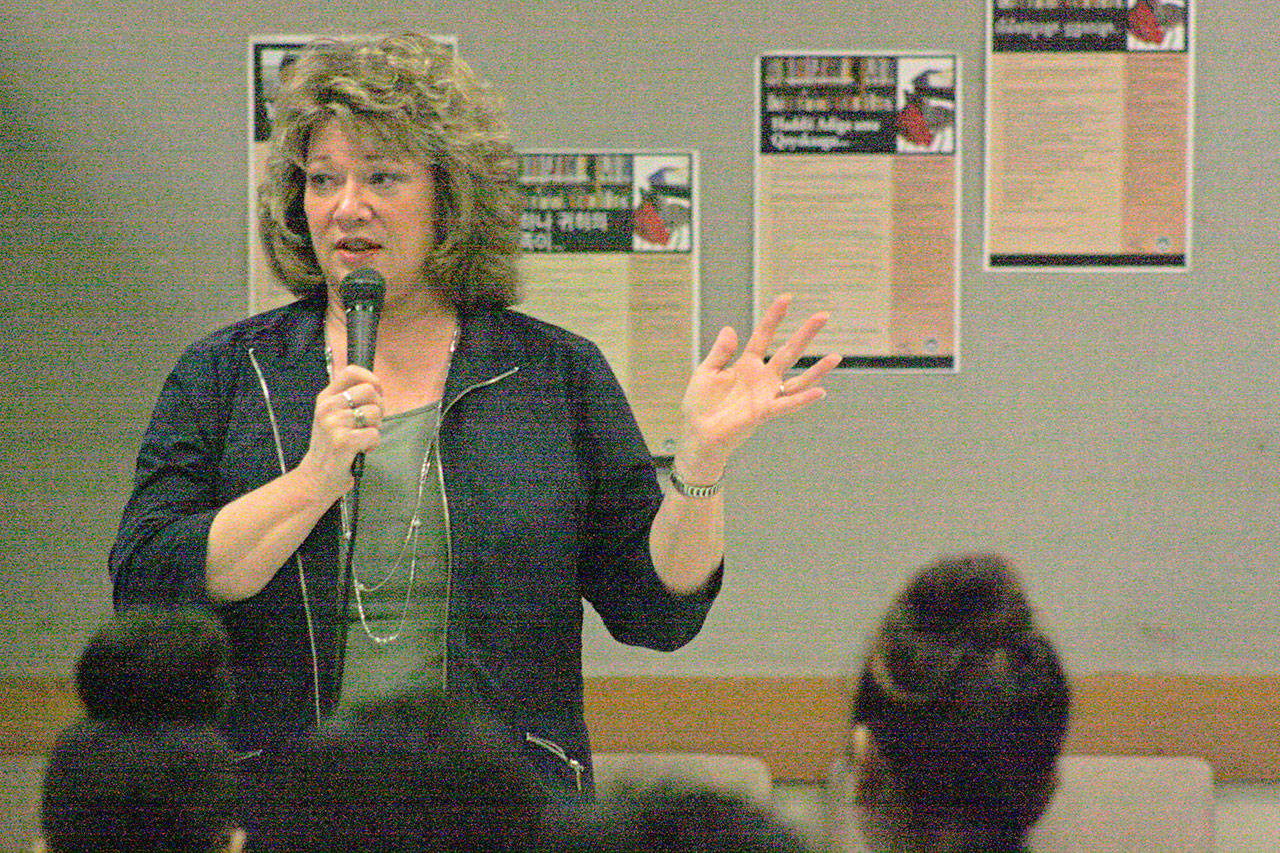West Auburn High School students are concerned about what’s happening in their neighborhoods and throughout the country – from crime to homelessness, immigration policy to drug abuse.
Mayor Nancy Backus, who was invited last week to the school to listen to those concerns, fielded questions from students and threw the City’s support behind whatever problems that may trouble them.
“I’m all in,” Backus told the gathering for the student-led Voice of the Community Launch Assembly in the school’s commons on March 2. “Don’t count me out … give me a chance. I would love to be a part of anything you want to do.”
School leaders said the program is an effort to better engage teens – a student body of about 220 strong – in a conversation about the community they live in and what impact an individual might have. The program is also asking language arts students to submit a letter to the mayor on an “issue of significance” in their community, be it of local, regional, state or national scope.
The idea is to inspire teens to become more involved in the community and to suggest ideas on how to respond to those challenges.
Backus discussed the plight of others, notably those caught in the throes of heroin-opioid drug addiction and homelessness but reassured the young audience that the City and its nonprofit partners are doing what they can to stem the problems.
Task forces have been established on City and King County levels to confront those problems, she told students.
The City, Backus said, is working with Nexus, formerly Auburn Youth Resources, to shelter 20 youth and young adults at its South Auburn Way facility. On the north end, the City has joined Valley Cities in pursuit of an overnight shelter to accommodate 20-30 homeless people until they can secure permanent housing.
Providing a mobile hygiene center for the homeless is also a possibility, the mayor said.
“We’re sad that we have to do it, but we’re excited that we have the opportunity to do it,” Backus said of ways to help the homeless. “It’s not going to solve all these problems. It just won’t, but it’s going to be a significant improvement.”
Regarding the City’s controversial debate on whether to be an official sanctuary city, thus granting immunity to undocumented immigrants, Backus was noncommittal, but added, “Some of the things that are going on with the federal government right now scare the living daylights out of me.”
President Trump’s administration has declared it would withhold federal funding from jurisdictions that declare themselves sanctuary cities. Auburn could lose millions of federal dollars every year that pay for streets and key services if it decides to adopt the designation.
Backus said the City could lose nearly a million dollars over the course of three years to pay for six new police officers.
The issue remains a divisive one for the City Council and a difficult one for Backus, who emphasized the City’s commitment to the safety of its residents.
“I don’t know what’s going to happen on a number of fronts – for cities, for counties, for states,” she said. “I don’t mean to talk politics because I don’t care if you’re a Democrat, Republican or independent, we all need to work together to solve these issues. … What’s been happening is I see more people coming together to fight the hate … that, all of a sudden, it’s OK to be vocally hateful and mean and abusive. That’s not what we’re about. That’s not what you are about here.”
Backus encouraged students to be more involved in their community, whether by performing public service or becoming involved at City Hall. The Junior City Council has an opening, Backus said, and urged some West Auburn student to represent it.
Regarding prevalent crime on the block, Backus encourages caution, teamwork and some help.
“If you see it, report it,” she said. “What’s called in gets measured and gets worked. If we don’t get phone calls, it didn’t happen.”
For nonemergency situations, call police at 253-288-2121.
The assembly proved helpful and enlightening to students.
“This is special to us,” said senior Alma Lopez, student body vice president. “We’re grateful that she came to talk to us about the problems.
“We’re not recognized … we’re a very small school,” she said. “We’re grateful that she’s given us a voice … to speak up and speak about our problems.”


